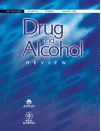 Accueil
Accueil
Mots-clés
Documents disponibles dans cette catégorie (190)
 Ajouter le résultat dans votre panier Faire une suggestion Affiner la recherche
Ajouter le résultat dans votre panier Faire une suggestion Affiner la recherche
Article : Périodique
Depuis l'introduction de l'ibogaïne en médecine plus de cent ans auparavant, des observations ont conduit à émettre l'hypothèse que cette substance possède des propriétés anti-addictives. Des études précliniques ont démontré que l'ibogaïne rédui[...]
Article : Périodique
The illicit marketplace of substances of abuse continually offers for sale legal alternatives to controlled drugs to a large public. In recent years, a new group of designer drugs, the synthetic cathinones, has emerged as a new trend, particular[...]
Rapport
This publication presents the data and findings of the risk assessment on 1-(3-chlorophenyl)-2-(methylamino)propan-1-one (3-chloromethcathinone, 3-CMC), carried out by the extended Scientific Committee of the EMCDDA on 19 November 2021. On the b[...]
Rapport
This publication presents the data and findings of the risk assessment on 2-(methylamino)-1-(3-methylphenyl)propan-1-one (3-methylmethcathinone, 3-MMC), carried out by the extended Scientific Committee of the EMCDDA on 18 November 2021. On the b[...]
Article : Périodique
M. COPPOLA ; R. MONDOLA |In recent years, the spread of new psychoactive substances has dramatically increased in term of availability of both number of compounds and chemical families. In November 2012, 4,4'-Dimethylaminorex (4,4'-DMAR), a novel synthetic stimulant, wa[...]![4F-MDMB-BICA. Risk assessment report on a new psychoactive substance: methyl 2-{[1-(4-fluorobutyl)-1H-indole-3-carbonyl]amino}-3,3-dime-thylbutanoate (4F-MDMB-BICA) in accordance with Article 5c of Regulation (EC) No 1920/2006 (as amended)](https://bdoc.ofdt.fr/img_cache/pmb_ofdt_record_84048.webp)
Rapport
This risk assessment report presents the summary findings and the conclusion of the risk assessment carried out by the Scientific Committee of the EMCDDA on 4F-MDMB-BICA. The report is intended for policymakers and decision-makers in the institu[...]
Article : Périodique
Issues: 5-(2-aminopropyl)indole (5-IT) is a new psychoactive substance, a 'legal high', that recently invaded the drug arena in Europe and has already led to numerous intoxications and fatalities. Knowledge upon its pharmacology and toxicity is [...]
Thèse, mémoire
GALLEGO A. | 1999FRANÇAIS : L'Absinthe possède des vertus médicinales connues depuis l'antiquité. Artemisia absinthium appartient à la grande famille des Astéracées (ex Composées) sous famille des radiées, du fait de ses caractères morphologiques, fonctionnels [...]
Rapport

Article : Périodique
Identifying the array of chemicals now being sold over the internet as recreational drugs is a daunting task. But how much of a risk do these substances actually pose?
Livre
Cet ouvrage, qui s'adresse plus particulièrement aux chercheurs, fait une synthèse très complète des connaissances sur les amphétamines et composés dérivés, analysent les découvertes antérieures et proposent de nouvelles directions de recherche.[...]
Périodique
J. RAMSEY ; H. R. ANDERSON ; K. BLOOR ; FLANAGAN R. J. | 1989FRANÇAIS : Les auteurs présentent une synthèse des connaissances sur l'abus de solvants en Grande Bretagne. Il s'agit surtout d'une pathologie rencontrée chez les adolescents. Dans cette population, on estime le taux de prévalence du recours (a[...]
Article : Périodique
An overview of recent developments in the analytical detection of new psychoactive substances (NPSs)
New psychoactive substances (NPSs), sometimes referred to as "legal highs" in more colloquial environments/the media, are a class of compounds that have been recently made available for abuse (not necessarily recently discovered) which provide s[...]
Article : Périodique
The steady increase of new drugs of abuse on the illicit drug market is a great challenge for analytical toxicologists. Because most of these new drugs or drug classes are not included in established analytical methods targeting classic drugs of[...]
Périodique
CHATTERJIE N. ; A. K. RAY ; G. J. ALEXANDER | 1997FRANÇAIS : Les deux antagonistes des opiacés : la naloxone et la naltrexone, ont été soumis à une réaction de Wittig, dans des conditions identiques à celles reportées par Hahn et coll.. Les produits isolés ont été identifiés par RMN, spectromé[...]





